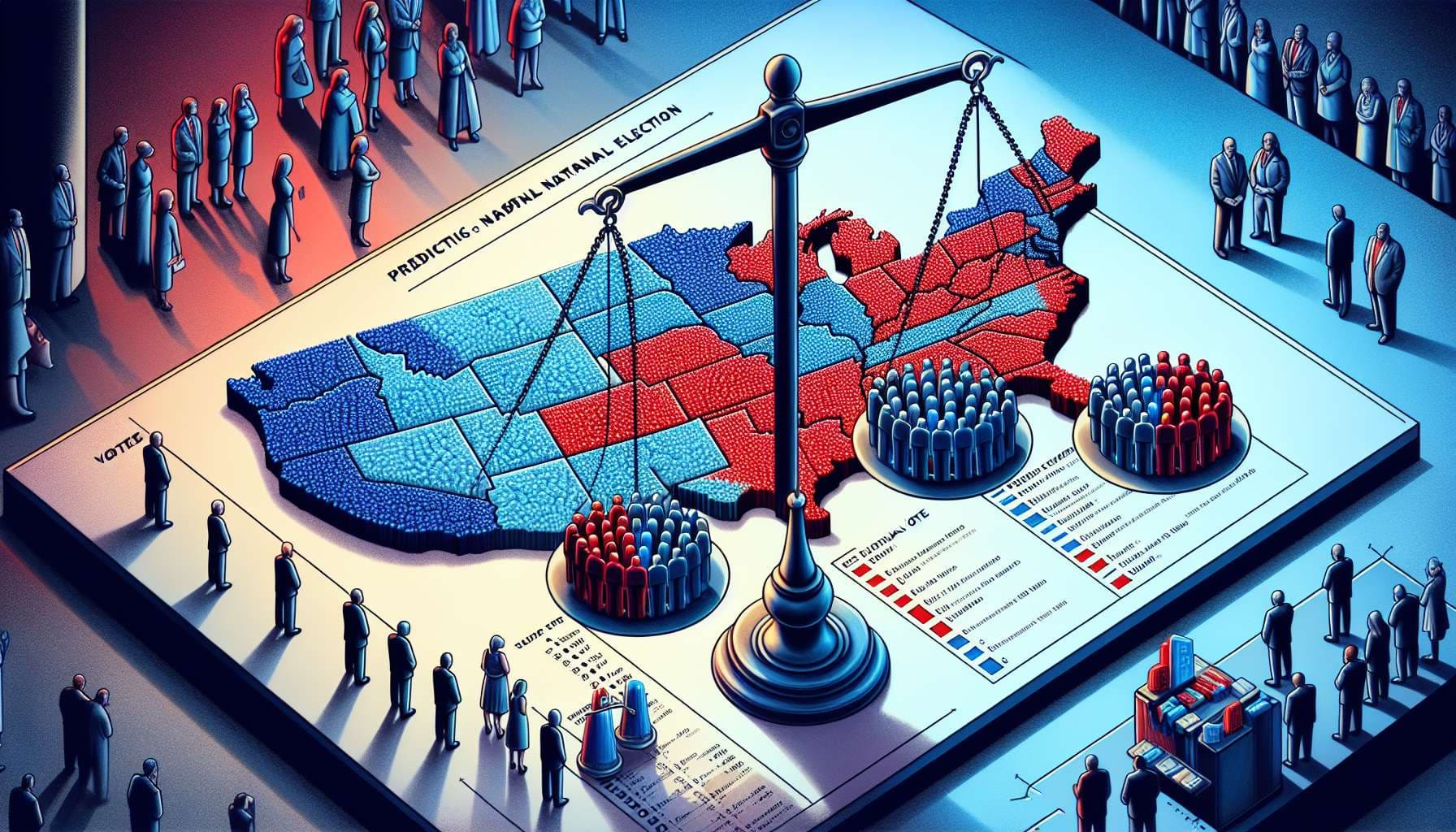
It's well known that Republicans have a big advantage in the Electoral College, which caused Trump to win the 2016 election despite losing the popular vote by about 2% and made the 2020 election a lot closer than it otherwise would have been. The purpose of this market is to determine just how big that advantage will be this cycle by estimating how much Biden needs to win the popular vote by in order to actually win the election.
🏅 Top traders
| # | Trader | Total profit |
|---|---|---|
| 1 | Ṁ1,167 | |
| 2 | Ṁ701 | |
| 3 | Ṁ416 | |
| 4 | Ṁ410 | |
| 5 | Ṁ363 |
People are also trading
Here's the replacement for this market. It doesn't have much liquidity (it seems that Mini multiple-choice markets have less liquidity per option than old ones did) because I didn't have enough mana to make a Basic market, but feel free to subsidize it if you think it's valuable. It closes before Election Day, so you won't lose all the liquidity to news traders.
Hm, I just thought of a potential scenario (though still very unlikely) where Biden could win the popular vote by a massive margin but still lose the Electoral College. Suppose that the Supreme Court rules that individual states like Colorado and Maine are allowed to exclude Trump from the ballot in their states, without disqualifying him entirely. My market currently gives this about a 10% chance of happening, though I think that's probably too high. If this does happen, Trump is likely to lose big in the popular vote, since there will be entire states where people can't vote for him. But it's unlikely to affect his standing in the Electoral College, since he'll likely only be excluded in blue states. So in this situation, Biden would have a very large popular vote margin but could still lose the election.
@PlasmaBallin This basically happened in 2022, dems won every swing state senate race while losing nationally
@SemioticRivalry By losing nationally, I assume you're referring to the House popular vote? I don't think it's comparable to the POTUS election because individual candidates matter in Senate elections. Republicans nominated a bunch of terrible candidates for all the competitive Senate elections, so they did worse there than their national House vote. In the presidential election, the candidate running to win the competitive states is the same one running to win all the other states.
Also, in general, a midterm has a different electorate than the presidential elections, so trends like the Republican Electoral College advantage might not manifest themselves in the same way there.
@PlasmaBallin it's difficult to say how much of a race was dependent on the candidate vs partisanship, but the margins in these races mostly weren't all that close so I'm inclined to think there was a meaningful (relative) shift in dems favor. e.g. in a R+2 year, you'd expect pennsylvania to be roughly R+5. Yet Fetterman won by 5. So even if you give 5 points for candidate quality, PA still shifted 5 points left.
The data showing racial and age depolarization and continued educational polarization is also fairly bullish for a significant reduction in the EC edge. The fact that Republicans are content to attack Biden over his age over and over again may not go over super well with old voters, and PA is the 8th oldest state, and has a really outsized effect on the electoral college edge. PA also has the 15th highest proportion of voters with a bachelor's degree and 10th most with an advanced degree.
@SemioticRivalry - the senate elections are only ever partial elections (only 1/3rd iirc), so they never correspond to a national election, and so they are hard to compare.